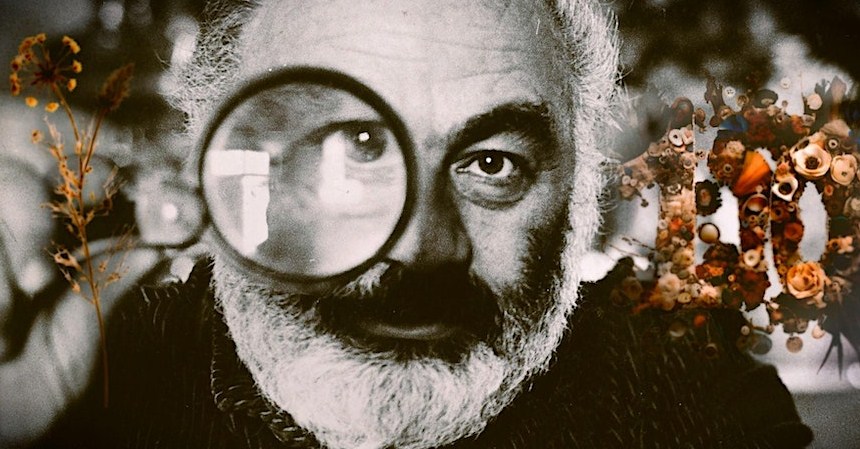Sergei Parajanov, one of the most original and influential filmmakers of the 20th century, would have turned 100 years old on January 9, 2024. To celebrate his centenary, various cultural events and film retrospectives are planned around the world, honoring his artistic legacy and cinematic vision.
Parajanov was born in Tbilisi, Georgia, to Armenian parents in 1924. He studied film at the VGIK in Moscow, where he was influenced by the works of Eisenstein, Dovzhenko, and Vertov. He started his career in the 1950s, making films in the Soviet style of socialist realism. However, he soon developed his own distinctive style, blending folklore, symbolism, poetry, and collage, creating films that defied the conventions and expectations of the Soviet authorities.
His breakthrough film was Shadows of Forgotten Ancestors (1965), a visually stunning and emotionally powerful adaptation of a Ukrainian novel, set in the Carpathian mountains. The film won numerous international awards and established Parajanov as a master of cinema. His next film, The Color of Pomegranates (1969), was a poetic and unconventional biography of the Armenian poet Sayat-Nova, using images and sounds to evoke his life and art. The film is widely regarded as one of the greatest films of all time, and a masterpiece of world cinema.

However, Parajanov’s artistic freedom and personal life came at a high price. He was persecuted and imprisoned by the Soviet regime several times, on false charges of homosexuality, bribery, and anti-Soviet propaganda. He spent four years in labor camps and nine months in prison, during which he was banned from making films and his works were censored or suppressed. He was also subjected to harassment, discrimination, and surveillance, and his health deteriorated.
Despite the hardships and obstacles, Parajanov never gave up his creative spirit and continued to make films, collages, drawings, and dolls. He was supported by his friends, colleagues, and admirers, who campaigned for his release and recognition. He was also praised and admired by many prominent filmmakers, such as Fellini, Tarkovsky, Godard, Scorsese, and Coppola, who considered him a genius and a source of inspiration.
After the political situation in the Soviet Union changed in the mid-1980s, Parajanov was finally able to resume his filmmaking career. He made two more feature films, The Legend of Suram Fortress (1985) and Ashik Kerib (1988), both based on Georgian and Azerbaijani folk tales, respectively. He also planned to make more films, such as The Confession, based on his own life, and The Passion According to Andrei, a tribute to his friend and fellow filmmaker Andrei Tarkovsky. However, he died of lung cancer in 1990, in Yerevan, Armenia, leaving behind a rich and diverse body of work that continues to fascinate and enchant audiences and critics alike.
In 2024, UNESCO will mark the 100th anniversaries of Parajanov and another famous Armenian, singer and actor Charles Aznavour, as part of its calendar of eminent personalities and important events. The decision was made during the 42nd session of the UNESCO General Conference in Paris in 2023, with the support of several countries and groups.
The centenary of Parajanov will also be celebrated with film festivals, exhibitions, publications, and other events in various countries, such as Armenia, Georgia, Ukraine, France, Italy, Poland, and others. Some of the events have already been announced, such as a retrospective of Parajanov’s films at the Cinémathèque Française in Paris, a major exhibition of Parajanov’s artworks at the National Gallery of Armenia in Yerevan, and a symposium on Parajanov’s cinema and culture at the University of Oxford in the UK.
Parajanov once said, “Everyone knows that I have three Motherlands. I was born in Georgia, worked in Ukraine and I’m going to die in Armenia.” His films reflect his multicultural and multilingual identity, as well as his love and respect for the traditions and histories of the peoples and regions he depicted. His films are also universal and timeless, transcending the boundaries of language, genre, and ideology, and expressing the beauty and mystery of life, art, and spirituality.
Sergei Parajanov was a visionary artist, a rebel, and a martyr, who sacrificed his freedom and well-being for his art and beliefs. He was also a generous and humble human being, who shared his talent and wisdom with others. He left behind a legacy that is unique and invaluable, not only for the cinema, but for the whole of humanity.
